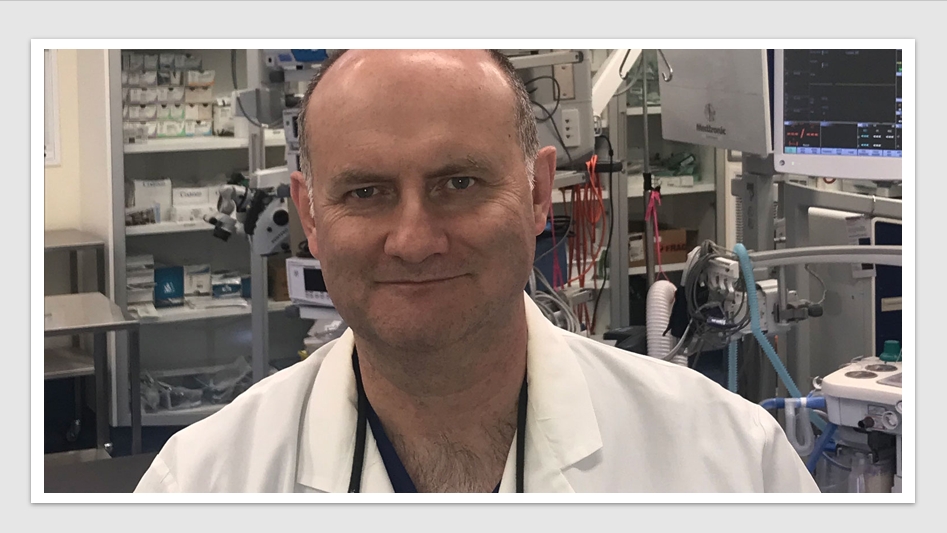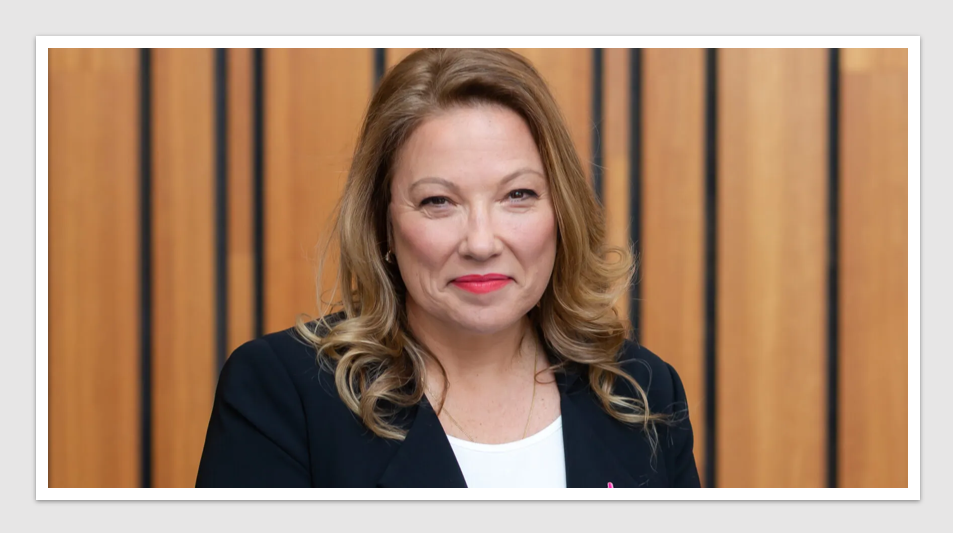Medical
We need outcome-based care, says IBD specialist

Medical: The COVID-19 pandemic has affected the processes of routine comprehensive care for chronic patients due to disrupted delivery of care.
Associate Professor Susan Connor, Head Inflammatory Bowel Disease Service, Department of Gastroenterology & Hepatology, Liverpool Hospital joined Health Industry Hub in highlighting how patient care in inflammatory bowel disease (IBD) has shifted and evolved since the start of the pandemic, the current unmet needs in moderate to severe ulcerative colitis (UC) management, and where the latest UC therapy will fit in the treatment paradigm.
There have been significant challenges for patients and hospital staff in keeping up with the ever-changing vaccination guidelines and navigating the healthcare system in the past two years.
A/Professor Connor said “The diversity of patients we look after and the access to care has been much more difficult in rural, remote and poor areas of our country, such as Western Sydney, where a large number of patients who were affected by COVID do not speak English. Trying to help them navigate the system and get access to care has been difficult.
“Most of our patients also require a full vaccination. We emailed them to do it but actually to reach everybody is quite hard. Messaging from Federal and State Governments has not been good.”
In considering patient therapy options and limiting those that needed to physically come into the hospital, A/Professor Connor noted that some patients were switched from infusions to subcutaneous IBD treatments. The more complex patients requiring higher infusion dosing either came to the hospital or had home infusions coordinated by the pharmaceutical industry.
A/Professor Connor continued “Endoscopy has also been a major issue, with patients waiting up to two years for surveillance endoscopies because of the COVID-19 impact on hospital elective procedures in relation to Category B items.”
When patients and clinicians engage in shared decision-making, it can lead to increased patient satisfaction and improved outcomes.
A recent study highlighted the current unmet needs in UC management. Survey of patients (n = 2100, mostly with moderate to severe UC) and clinicians (n = 1254) across 10 countries, including Australia, revealed that while 67% described their UC as controlled with few to no symptoms, on average, patients experienced 4.3 flares in the past year. Diagnostic delay was on average 2.0 years and 42% of patients waited ≥1 year. Most patients (65%) felt that UC controlled their life rather than them controlling their disease. Because of the fear of repercussions, many patients had not disclosed their UC to their employer.
Discussion of the emotional impact of UC during routine appointments was less of a priority for clinicians, compared with patients. Only 48% of the Australian respondents to the survey felt comfortable raising emotional concerns with their treating doctor.
At diagnosis, 78% of patients wished they had known where to find more information and support. The survey identified gaps in patient knowledge of UC, and for most aspects, clinicians recognised the knowledge gaps.
A/Professor Connor said “We need to be directing patients to reliable UC information including the information provided by patient advocacy organisations. Clinicians need to get patients educated early. For example, some patients don’t understand that recurring flares are not acceptable and that you need to seek advice quickly.”
Bristol-Myers Squibb Australia (BMS) recently welcomed the Therapeutics Goods Administration (TGA) registration of Zeposia (ozanimod), the first and only oral sphingosine 1-phosphate (S1P) receptor modulator approved to treat patients with moderate to severe ulcerative colitis (UC).
In considering where this new UC therapy will fit in the treatment paradigm, A/Professor Connor said “What patients want is an effective therapy that is durable and tolerable. If these are all ticked, then their preference extends to an oral form of therapy that is easy to take.
“Ozanimod takes about two weeks to work, so it’s not going to be used in the acute severe UC group. It is a good option for moderate to severe UC patients. I think it may end up earlier in the treatment paradigm after immunomodulator use because of its safety profile.”
She continued “There doesn’t seem to be any safety signals around malignancy, which is good. However, there are safety signals in terms of cardiac effects, which we can manage by sending the patient to a cardiologist, and for herpes zoster which we can vaccinate patients for.”
There are no locally investigator initiated trials (IITs) for Zeposia, according to A/Professor Connor. However, Bristol Myers Squibb (BMS) is continuing to evaluate the therapy in the ongoing True North open-label extension trial in moderate to severe active UC. The company is also investigating Zeposia for the treatment of moderately to severely active Crohn’s disease in the ongoing Phase 3 YELLOWSTONE clinical trial program, which includes 13 Australian sites. There is also a plan for a paediatric study in ulcerative colitis which has not started yet.
There are current barriers to timely access to innovative treatments in Australia. On average, over 60% of medicines become available to patients within 6 months in similar OECD countries, compared to Australia’s 22%.
A/Professor Connor said “Health costs a lot of money. We have several drugs which are really good but have not been reimbursed. There are still a large number of patients whose needs are not being addressed. We really do need these IBD drugs available because they will transform care.
She added “Currently, our healthcare system is demand-based. We need outcome-based care. A commitment to real world data through something like Crohn’s Colitis Care (CCCare) is critical in this space. The prospective granular data will reflect how patients are actually doing on these drugs and inform the healthcare system on the clinical unmet needs.
“What we are trying to do is improve patients’ wellbeing so they can contribute to the GDP and the country goes forward. Health is critical for our GDP and we do not have enough active young people to fund our retirees. In fact, we need to keep all our young people fit and healthy because the whole society will gain by that.”
 The Health Industry Hub news, podcasts and webinars are copyright protected and access is provided under individual user licenses. For more information, visit https://www.healthindustryhub.com.au/membership/ and T&Cs.
The Health Industry Hub news, podcasts and webinars are copyright protected and access is provided under individual user licenses. For more information, visit https://www.healthindustryhub.com.au/membership/ and T&Cs.
News & Trends - MedTech & Diagnostics

Roche Diagnostics MD bids farewell after two-decades, leading the organisation to new heights of success
Diagnostics & MedTech News: The Managing Director of Roche Diagnostics Australia, Allison Rossiter, has announced her resignation, effective September 2024. […]
MoreNews & Trends - Pharmaceuticals

Is Australia ready to play a leading role in precision nuclear medicines?
Pharma News: A newly released discussion paper unveils Australia’s preparedness to take the helm in the rise of the global […]
MoreNews & Trends - MedTech & Diagnostics

Minimally invasive procedure a first in epilepsy treatment
MedTech & Diagnostics News: An Australian-first procedure utilising MRI-guided, minimally invasive surgery has been introduced for the treatment of epilepsy […]
MoreNews & Trends - Pharmaceuticals

Stakeholders unite in international call to tackle breast cancer gaps and inequities
Pharma News: Breast Cancer Network Australia (BCNA) has united in an international call to raise breast cancer care standards and […]
More